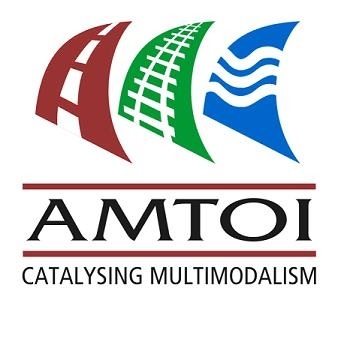The Association of Multimodal Transport Operators of India (AMTOI) held its 20th AGM and also organised an important, well-attended knowledge session here on August 8, 2019.
Antwerp Port being the gateway for omni-channel logistics in Belgium as well as in Europe and the digitisation in the logistics industry were the highlights of the knowledge session which was attended by luminaries like Mr Luc Arnouts, Vice-President, International Relations & Networks, Antwerp Port Authority, Mr Sanjeev Sinha, Ms N. S. Nappinai of Nappinai & Co. – Advocates, Mr Shantanu Bhadkamkar, President, AMTOI, and its other office-bearers and members.
Mr Subhash Desai, Minister of Industries & Mines, Maharashtra, was the Chief Guest on the occasion.
The knowledge session began with a welcome address by AMTOI President, Mr Bhadkamkar. He invited the first speaker Mr Sinha to present his views on the subject of Digital Transformation in Logistics for the benefit of the members and the trade.
Mr Sanjeev Sinha started the knowledge session with his presentation on digital transformation in logistics and pointed out to the momentous developments taking place in the field of logistics all over the world in this regard. It was pointed out that companies like Amazon and Alibaba had already started investing in logistics.
Digital Analytics was another aspect that Mr Sinha dwelt upon in detail. It was pointed out that analytics is going to hold the prime place in the upcoming digital world of logistics and the industry should prepare itself by investing and updating itself in the field.
It was also pointed out that the 4th industrial revolution was all about digitisation and automation even in the field of logistics and we cannot escape from this. The way out is to go for it in an analytical way and use profitably in our business as we cannot wish it away.
Another important area is to change the mindset about using digital platform and it is very important. The industry needs to change its mindset about using the data and implement it in its day to day life. We have to understand that this is a digital universe and we cannot escape its adverse effects without joining it as a professional.
He also pointed out that generally, people face difficulty in deciding from where to start for digitisation. There is nothing to worry about this. Start using data from where you are most comfortable and gradually increase its footprint in your organisation for the benefit of your business.
Mr Luc Arnouts, Vice-President, International Relations & Networks, Antwerp Port Authority, spoke about the port being the gateway for omni-channel logistics not only in Belgium but also in Europe with access to the huge consumer market. It was number 2 port in Europe and with its central location, had access to all important markets.
Port of Antwerp is a port in the heart of Europe accessible to Capesize ships. It is Europe’s second-largest seaport, after Rotterdam. The port’s location provides a more central location in Europe than the majority of North Sea ports. Antwerp’s docks are connected to the hinterland by rail, road and river and canal waterways, it was pointed out.
The port of Antwerp has the benefit of Be-Gate portal, which was specially designed for the growth market of e-commerce, serves to accelerate and increase the efficiency of Customs clearance in the cross-border flow of goods. Be-Gate was developed on the initiative of the Belgium Customs and Excise Department and is unique in Europe.
The free-of-charge Customs portal Be-Gate is designed for processing a large amount of data and guarantees rapid clearance of customs applications. A high number of arrival notifications can be transmitted simultaneously via an officially Customs approved form.
He pointed out that leadership was needed in the field of digitisation in the organisation. It should be about goal setting and not only about going digital. The need of the hour is to set a goal to benefit from digitisation and then going for it in a planned and phased manner within the organisation.
Data sharing and data protection are other important areas. We should work on them for the industry. Data sharing is important for the free movement of information but the security of the data is also important to protect the providers in the digital era.
Ms N. S. Nappinai, the cyber laws expert, spoke about data security in the age of growing digitisation. She gave the example of Estonia, which was brought to a standstill in the year 2007 by some miscreants through cyber hacking and so data security should be taken in all seriousness and not taken lightly by the organisations.
She also talked about PTB Bill in India and its implications on the logistics industry.
She pointed out that the expenses on cyber security may seem unnecessary or too much at the initial stage but considering the fact of hacking and its ramifications, the cost-benefit ratio becomes beneficial for the industry.
Mr Subhash Desai, Minister for Industries and Mining, Maharashtra, spoke about the cooperation between his Ministry and the industry. He invited the members of the industry to come to his office and meet his team and help in formulating policies for the state to grow economy.
He expressed his happiness that business people were talking about cyber crimes and taking interest in digitisation. He pointed out that the Maitree scheme was there for the benefit of the industry and acts as a single-window for clearance.
He sought cooperation in attracting investment to the state, pointing out that due to availability of a vast skilled manpower, of the investments that come into the country, 30 per cent comes to Maharashtra.






